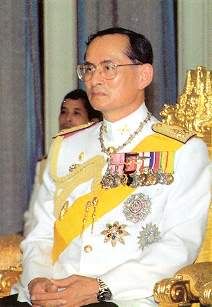Read here full article "Stepping Stone to War" by Justin Raimondo
Only 21 members of the House stood up against the overwhelming bipartisan wave of support for Iran Freedom Support Act, which would impose economic sanctions on the Iranians – and openly proclaims the goal of effecting "regime change."
While the Iran Freedom Support Act contains language explicitly disavowing the charge that it represents a blank check for war with Iran, that is precisely what it does.
It sets the stage for isolating Iran economically and paves the way for the creation of an Iranian version of Ahmed Chalabi and his "heroes in error."
We will, once again, pay for the privilege of being lied to.
Rep. Ron Paul, a Texas Republican, said the bill reminds him of a 1998 congressional resolution – the Iraq Liberation Act – that paved the way for the Iraqi debacle.
Yet most of the "antiwar" contingent in the House of Representatives caved and voted in favor, including Democrats John Conyers, Maxine Waters, Jack Murtha, Bernie Sanders, Barbara Lee, and Lynn Woolsey.
Passage (of the bill) is a major goal of AIPAC, Israel's premier lobbying organization in the U.S., which for the past two years has featured the alleged Iranian threat to America as its convention theme: this year's conclave featured a multimedia exhibit supposedly dramatizing how Iran is "pursuing nuclear weapons and how it can be stopped."
As Middle East expert Trita Parsi, of the John Hopkins School for Advanced International Studies, put it: "I don't see any other major groups behind this legislation that have had any impact on it."
The Israelis have made no secret of their efforts to get Uncle Sam to launch an attack.
If you guys don't, a number of Israeli officials have implied, then we will.
This last, however, is an empty threat, as the Israelis don't have the military capacity to wipe out Iran's widely dispersed nuclear research facilities in a single blow, and, in any case, are more than likely to wait until the last possible moment before they take the unusual step of fighting their own war.
After all, why should they, when the U.S. is perfectly willing to sacrifice American troops and treasure on the altar of Israel's alleged national security interests?
Iran represents a threat to nothing and no one but Israel, and everybody knows it.
It is likewise universally acknowledged that the one Middle Eastern power we definitely know to be in possession of a substantial nuclear stockpile is Israel.
The Iranians, then, could be seen as engaging in a defensive policy of deterrence: after all, Israel has never even acknowledged its nukes, let alone declared a policy of "no first strike."
Unlike the Israelis, the Iranians are signatories of the Nuclear Nonproliferation Treaty.
But of course we aren't allowed to mention that, because depicting the government of Israel as a gang of duplicitous scheming aggressors intent on holding a nuclear sword of Damocles over the entire Middle East would be "anti-Semitic," according to the latest definition of anti-Semitism, albeit all too true.
The timing on this vote is significant on two counts.
Coming as it did at a time when the debate about Israel's inordinate influence over U.S. foreign policy is getting heated, this vote demonstrates that, as John J. Mearsheimer and Stephen Walt point out in "The Israel Lobby":
"AIPAC, which is a de facto agent for a foreign government, has a stranglehold on the U.S. Congress.
Open debate about U.S. policy towards Israel does not occur there, even though that policy has important consequences for the entire world."
The sheer power of what Mearsheimer and Walt call "the Lobby" is further demonstrated by the general public revulsion against the consequences of our very similar policy in Iraq.
In the Senate, the primary proponents of this bill are likely to be Hillary Clinton and the rabidly neocon wing of the Republican Party.
Seymour Hersh and others seem to think the Bush administration will beat President Hillary to it, and that military operations involving both the Americans and the Israelis have already commenced.
The Iran Freedom Support Act would merely drag these covert activities up into the sunlight, although their roots would stay submerged in the murky underworld of shadowy exile groups and Pentagon subcontractors.
Let no one say they were against this war with Iran, when it comes, if they didn't vote with the heroic 21 naysayers. These sanctions against Iran are but a prelude to war, just as sanctions were the first step in the long run-up to the invasion of Iraq.
Events are proceeding at an ever accelerating pace, with Secretary of State Condoleezza Rice now saying the time for talking is over and the time for action has begun – not military action (at least not yet), but action by the Security Council of the United Nations, whose "credibility is at stake."
I wonder if that same standard applies to the many UN resolutions that Israel continues to defy. Hasn't the UN already lost all credibility when such brazen defiance has gone unnoticed by the Security Council?
Let no one say they weren't warned.
Using Iraq as a "model" for the methodology of the War Party, we can see, when it comes to Iran, that all the elements are falling neatly into place.
Once again, we have the specter of WMD and their possible existence or nonexistence: a mirage projected by the credulous Western "mainstream" media, one that is sure to dissipate only after we're waist-deep in an Iranian quagmire.
Another familiar phenomenon: dubious exile groups, along the lines of the infamous Iraqi National Congress, only this time even wackier, wilder, and woolier.
The Bush administration is going too slow for the Lobby's taste, and the House vote is a good indication of their displeasure.
In spite of widespread antiwar sentiment and a general disgust with the notion of meddling in the affairs of other nations, the War Party has effectively seized control not only of major policymaking bodies of the U.S. government, but also both major political parties.
Mearsheimer and Walt describe the campaign by Israel's amen corner to rush us into another war:
"The Bush administration has responded to the Lobby's pressure by working overtime to shut down Iran's nuclear program.
But Washington has had little success, and Iran seems determined to get a nuclear arsenal.
As a result, the Lobby has intensified its pressure on the U.S. government, using all of the strategies in its playbook."
As for this White House, while it may have developed plans for an attack on Iran, the current administration seems eager to draw out the diplomatic dance as long as possible, even in the face of what Mearsheimer and Walt depict as a Katrina-like storm of propaganda and political pressure:
"Op-eds and articles now warn of imminent dangers from a nuclear Iran, caution against any appeasement of a 'terrorist' regime, and hint darkly of preventive action should diplomacy fail.
The Lobby is also pushing Congress to approve the Iran Freedom Support Act, which would expand existing sanctions on Iran.
Israeli officials also warn they may take preemptive action should Iran continue down the nuclear road, hints partly intended to keep Washington focused on this issue."
The Lobby is on the march, and war is in the wind. The cries of the banshee pundits and the sonorous resolutions coming out of Israeli-occupied Capitol Hill, are portents of the coming storm.
Mearsheimer and Walt, two distinguished professors from two of our nation's most prestigious universities, have been vilified by the Amen Corner and have had their thesis twisted and willfully misunderstood by ultra-Zionists and anti-Semites alike.
They have admirably refused to get down in the gutter with such dishonest, agenda-driven scribblers, and instead have let their work speak for itself as a predictor and critic of U.S. policy in the Middle East:
"One might argue that Israel and the Lobby have not had much influence on U.S. policy toward Iran, because the United States has its own reasons to keep Iran from going nuclear.
This is partly true, but Iran's nuclear ambitions do not pose an existential threat to the United States. If Washington could live with a nuclear Soviet Union, a nuclear China, or even a nuclear North Korea, then it can live with a nuclear Iran.
And that is why the Lobby must keep constant pressure on U.S. politicians to confront Tehran.
Iran and the United States would hardly be allies if the Lobby did not exist, but U.S. policy would be more temperate and preventive war would not be a serious option."
As for this essay's predictive value: in light of the knowledge that it was commissioned by The Atlantic magazine and written sometime last year, the section on the Iran nuke issue seems prescient, an ample demonstration of the paper's thesis – that the Israel lobby has hijacked American foreign policy, especially when it comes to the Middle East.
Mearsheimer and Walt's critique of U.S. policy, as distorted by neoconservative fealty to Israel, is more than borne out by the Iran nuke brouhaha.
Iranian missiles trained on Tel Aviv, or even London, do not a threat to the U.S. make.
It is doubtful they represent a plausible threat even to the targeted cities, as the threat of massive retaliation in kind would successfully deter such a heinous act, just as it deterred Stalin and his successors for half a century.
It is both alarming and baffling that we have any number of lobbies operating out of Washington on behalf of dozens of foreign countries: not only Israel, but all sorts of overseas potentates and unsavory dictators of one sort or another have their bought-and-paid-for Amen Corners in the form of at least one pricey public relations firm.
But I have yet to hear of a foreign policy lobby that operates on behalf of Americans – that looks out for exclusively American interests.
Why isn't there a countering force arrayed against all these foreign agents and their domestic allies who push for the narrow interests of the "homeland" – usually at Uncle Sam's expense?
Who will lobby Congress to start putting America first?
-Justin Raimondo






